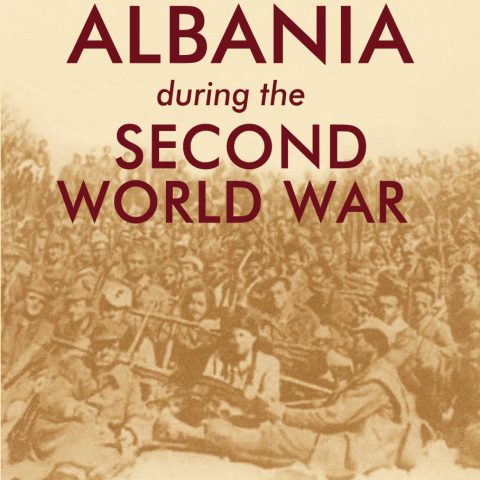Albania-Serbia relations suffer major setback following political reactions to violence in a football match between the two countries in Belgrade.
TIRANA, Oct. 16 – When Albania’s prime minister, Edi Rama, scheduled the first official visit by an Albanian head of government to Belgrade in 68 years for next Wednesday, Oct. 22, it was supposed to mark an important moment in Albania- Serbia relations.
After years of tension over Kosovo, Albania and Serbia were moving forward to having normal relations toward the shared goal of European integration, and the ice had thawed.
That vision suffered a major setback this week, following violence after the interruption of a football game between the two countries and extreme political reactions to it, which have quickly brought relations to a new low point.
The game was tense from the beginning as the Serb crowd hissed loudly over Albania’s national anthem and chanted “Kill, Kill, Kill the Siptars,” using the Milosevic-era derogatory name for Albanians. They pelted Albanian players with fireworks, coins and lighters when they got the got too close the sidelines. Then the Serb fans saw a small drone-like craft carrying an Albanian banner. And the violence took an entirely new nature with players brawling and fans invading the pitch.
The small craft was carrying a banner with the Albanian flag on a map of ethnic Albania, two of Albania’s founding fathers and the word “autochthonous,” a reference to Albania’s ancient roots in the Balkans before the Slavs’ arrival. The political banner was the only Albanian symbol that made it into the stadium that wasn’t meant to be burned, as Albanian fans were not allowed to attend. The Serb stands meanwhile were filled with political banners against Albanians, Croats and Bosnians.
The game was ultimately interrupted due to the violence, which saw several Albanian players hurt and left all psychologically traumatized. It looked, as they tried to run for the safety of the locker rooms, that the entire stadium wanted the lynch the team. The Albanian football association said in a statement they were attacked all the way to the locker room, including by stadium stewards.
Instead of condemning the violence of their fans, Serb political leaders quickly went into action to say that the violence was due to the lone Albanian banner, which they said was an officially-sanctioned Albanian provocation.
Serb President Tomislav Nikolic said the incident the flying of the banner was “an assassination carried out against the establishing of friendship between Serbia and Albania,” adding that “the only thing missing was an explosive device in the craft.” While Serb Prime Minister Aleksandar Vucic said that the goal was to “humiliate the Serbian nation,” and cause “long-term instability in Serbia and the Balkans, and impact the daily political situation in Serbia.”
Serbia summoned Albania’s ambassador to hand an official protest, and Nicolic said Serbia had expected the upcoming visit of Rama to be a sign of establishment of “excellent relations – but obviously, it will take Albania decades, if not centuries for Albania to become a normal country, without hatred towards Serbia.”
Nicolic’s comments infuriated many in Albania.
But Albania’s leaders have called on Albanians not to fall prey to hate and have accused the Serbs of trying to justify their own shameful behaviors.
Prime Minister Rama said in an interview that the Albanian flag flown above the stadium “could not be used as an alibi to hide what happened from the first minute of the game when an entire stadium hissed at the national anthem and screamed ‘kill the Albanians’ to the moment that our players had to leave the stadium under immense psychological pressure in addition to anti-sportive violence unseen before.”
“Albanians had nothing to do with what happened, which was a major disaster for the world’s most popular sport and also was extremely ugly and utterly condemnable violence and racism,” Rama said in an interview with the Albanian section of the Voice of America. “We condemn that football can become an instrument of policy and that the policy of states cannot be guided by what happens on a football field.”
Rama said on Twitter he “regretted that the neighboring country embarrassed itself globally with its ugly behavior.”
He added that the reaction trying to blame Albania for the mess was “a fig leaf that cannot cover the nakedness of racism displayed by the Serbs.”
Rama has not said whether he will reconsider his visit to Serbia next week, but there are increasing calls on him to cancel the visit. Albanian officials have said “all alternatives were open.”
The Albanian political opposition said through a spokesman that the match and the official reaction showed a missed opportunity on the part of Belgrade to show that it has left past extremism and violence behind.
“It was a lost chance to show a European vision and willingness to move forward,” said Aldo Bumci, a Democratic Party MP.
Swedish Foreign Minister Carl Bildt said on Twitter he hoped Rama would still visit Belgrade.
“Irresponsible provocation at Serbia- Albania football match. I hope the two PMs will see the need to move forward in bilateral links,” Bild wrote.
Serbia remains caught up in the past
What made events more shocking was the fact that they laid bare how little the mentality of the Serb masses has changed since the Milosevic era, according to experts with the Albanian Institute for International Studies. The events in the stadium brought the two countries back more than a decade. They showed how little Serb society has modernized. They also showed how deeply ingrained the enmity for Albanians is among the Serbs. And this comes at a time when it was believed the countries had reached a moment when they appeared ready to move forward with better relations, they added.
“The reality is that the two countries are currently in a cold-war-like state, in which the Albanian and Serb ambassadors have been called in twice by the host governments to be handed harsh protest notes. It is hardly the warm climate one would expect the Albanian prime minister to be received in his scheduled visit to Belgrade next week,” said Albert Rakipi, the executive director of the Albanian Institute for International Studies.
He added that Albania and Serbia share a common EU goal, but Albania’s commitment appears to be deeper, supporting EU sanctions against Russia for example, while Belgrade refused and organized a military parade to welcome Russian President Vladimir Putin instead. There were also joint Serbia Russia
military exercises on Croatia’s NATO border earlier this week.
“We are clearly looking at Serbia crystallizing a new orientation in its foreign policy,” Rakipi said.
Brawl, pitch invasion ended Euro 2016 qualifier
Tuesday’s 2016 European Championship qualifier with Serbia turned into a notorious event for the books after it was abandoned following scuffles among players and fans on the pitch over a banner featuring an Albanian flag that was flown above the stadium by a drone. English referee Martin Atkinson interrupted the match for good in the 41st minute.
After Serb defender Stefan Mitrovic managed to grab the banner, Albanian players tried to protect it. And that was the moment when several Serbian fans invaded the pitch and clashed with Albania players. There was physical violence from the Serb players with the Albanian ones and also from the pitch security staff.
Ultimately UEFA decided to abandon the match “due to a disturbance on the pitch.” The score was at 0-0.
“The Euro 2016 qualifying match between Serbia and Albania has been abandoned and the circumstances will be reported to the UEFA Disciplinary Body,” European football’s ruling body said in a statement.
Serbia had not allowed Albanian fans to attend the game and only a small group of journalists and a few businessmen and individuals present, sat at the VIP area close to the host authorities.
UEFA to investigate both federations
UEFA will in the coming days announce its decision regarding the game and whether disciplinary procedures will be launched, and against whom. Both Serbia and Albania face charges.
The Serbian hosts have been charged over “insufficient organization,” fireworks being set off, missiles being launched, a crowd disturbance, a field invasion by supporters and the use of a laser pointer, UEFA said.
The Football Association of Albania has been charged for “refusing to play” and over the display of “an illicit banner,” it said.
FIFA President Sepp Blatter tweeted: “Football should never be used for political messages. I strongly condemn what happened in Belgrade last night.”
Serbia’s history of violence
The Serb players said they wanted to resume the match. But Albanians said they were injured and physically abused and they were not safe on the pitch.
Serbian fans have a long history of violence and racial abuse. In October 2010, the Italy-Serbia European Championship qualifier was disrupted in Genoa by violent Serbia fans. UEFA eventually awarded Italy a 3-0 win. Ivan Bogdanovic, the leader of the hooligans that was imprisoned for the Genoa case was seen walking inside the pitch during the skirmishes in the Albania.
The Albanian anthem was loudly jeered by Serbian fans and derogatory chanting was heard throughout the first half. Serbian supporters also threw flares and other hard objects at the pitch.
Albania captain Lorik Cana said he and his teammates were hit by objects thrown from the stands and Albania’s Italian coach Giovanni de Biazzi said four players were injured.
“We also complained (to the UEFA delegate) that security staff in the stadium attacked us physically, as well as fans and some players,” he told Albania’s Supersport private TV channel.
The drone, clearly visible in the lights of the stadium, made a series of passes above the pitch.
The banner displayed an Albanian flag and a map of so-called “Greater Albania,” an area that comprises territory within today’s Albania, Kosovo, Serbia, Montenegro, Macedonia and northern Greece.
The banner also portrayed two Albanian nationalist leaders נIsmail Qemali, who declared Albania’s independence from the Ottoman Empire in 1912 and Isa Boletini, an Albanian fighter against the Turks.
Fearing trouble, hundreds of riot police were deployed inside and outside the Partizan stadium in Belgrade. Dozens of Albanian fans, mostly from Kosovo and Montenegro, apparently managed to get inside despite warnings by Serbian security officials that they would be arrested if they carry Albanian symbols.
After the violence, Albanian Interior Minister Saimir Tahiri sent a letter to his Serbian counterpart expressing concerns for the security of the Albania players, team staff, journalists and a few fans asking for “urgent steps to guarantee the security of all Albanian citizens present in the stadium.”
Albanian team gets heroes’ welcome in Tirana
Albania’s national soccer team returned home to a heroes’ welcome Wednesday. Up to 3,000 flag-waving supporters gathered outside Tirana’s airport early Wednesday to cheer the team. Prime Minister Rama, who is abroad, praised players on his Twitter page for “the pride and joy they gave us,” and said he was present in his heart at the airport reception.
Albania goalkeeper Etrit Berisha thanked the fans for the welcome, writing on his Facebook page that “defending our national symbols is a duty for us!”
Captain Lorik Cana said the team “unanimously decided” not to continue with the game.
“We considered our physical situation, with some injured players, which was not good,” he said, adding that players also felt threatened. “Our situation was clear, we could not continue the match. And the security situation was not adequate either.”
Cana said players “showed our neighbors we know how to respect them and also walk … with our heads high.”
Serbian officials accuse Albania of deliberate provocation
Serbian police announced an investigation Wednesday into who remotely piloted the drone that flew for several minutes over the stadium.
The incident spiked political tensions between two Balkan states that have been at odds for decades, mainly over the former ethnic Albanian-dominated Serbian province of Kosovo, which declared independence in 2008. Serbia נwhich considers Kosovo the cradle of its statehood and religion נhas never accepted Kosovo’s independence.
Serbian Interior Minister Aleksandar Vulin said the drone incident was “carefully staged,” aiming to discredit Serbia and present the nation as a regional security risk.
“Had someone from Serbia flown a ‘Greater Serbia’ flag in Tirana or Pristina, it would become an issue for the U.N. Security Council meeting,” said Serbian Foreign Minister Ivica Dacic, referring to the Albanian and Kosovo capitals.
The Albanian Foreign Affairs Ministry, responded that it strongly denounces the violence and the Serb misinformation that ran counter to the principles of sport and the politics of good neighborhood
“We regret that the high Serb authorities have not had the courage to distance themselves from the acts of violence and the hatred expressed openly toward our national symbols and also of the Atlantic Alliance (NATO),” the foreign minister, Ditmir Bushati said in a statement, urging a deep investigation of the incident and inviting them to “avoid offensive epithets en bloc toward Albanians and the disinformation that serves to no one.”
No Albanian fans allowed in the game
The Albanian football federation says its fans were not allowed to traveling with their national team for Tuesday’s European Championship qualifier in Serbia following a request from Belgrade.
Albania draws strong support from neighboring Kosovo, formerly a province of Serbia with an ethnic Albanian majority population that declared independence in 2008.
After a recommendation letter from UEFA, The Albanian authorities said arrangements would not be made for away fans נan action to be reciprocated by Serbia next year.
Albania-Serbia: Back to the cold war? – Belgrade violence calls into question future relations

Change font size:









